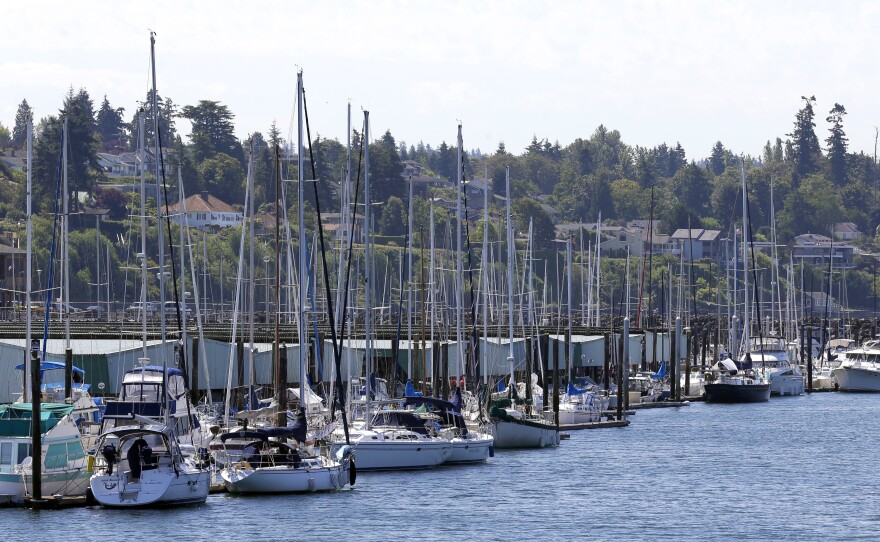Boats will soon be forbidden from releasing sewage anywhere in Puget Sound if the state Department of Ecology has its way. The agency is seeking federal protection, asking the EPA to declare the Sound a “no discharge zone” for vessel sewage.
Local regulators have been working for years to clean up Puget Sound. State agencies have upgraded wastewater treatment plants, provided funds for repair and maintenance of failing septic systems and worked to prevent polluted storm water runoff from cities and farms along the Sound. Asking the EPA to protect all that restoration work is a logical next step said Department of Ecology Director Maia Bellon as she announced the decision at a marina in Des Moines.
“We believe it is time, for the federal government to designate Puget Sound as a "no discharge zone,"
making it off limits to sewage releases from boats,” Bellon said.
She says boaters already have access to dozens of pump-out stations, as well as mobile pump-out units and trucks, most of which can be used free of charge.
But under current law, boaters are allowed to dump untreated wastewater three miles from shore. They can dump minimally-treated sewage anywhere in the Sound.
Many of them don’t, but when they do, it can quickly reach beaches and shellfish beds posing a threat to food safety said John Weisman, secretary of the state Department of Health.
“Because shellfish filter and then concentrate in them, whatever is in the water around them, including the harmful bacteria and viruses found in sewage that can make people sick,” he said. “And these same bacteria and viruses can make people sick who swim in sewage-contaminated waters.”
Weisman says once a "no discharge zone" is in place, the health department expects to be able to open more than 700 acres of shellfish areas that are currently closed because of their proximity to boat moorages.
The state estimates only about two percent of the commercial and recreational boats that have toilets on board would need to add holding tanks.
To make it easier for those facing significant costs to upgrade their equipment, the Department of Ecology is asking the EPA to allow five years for the changeover. That would be the longest phase-in ever provided for a new "no discharge zone."
The EPA has established more than 90 such zones in 26 states, but this would be the first in the Northwest.








